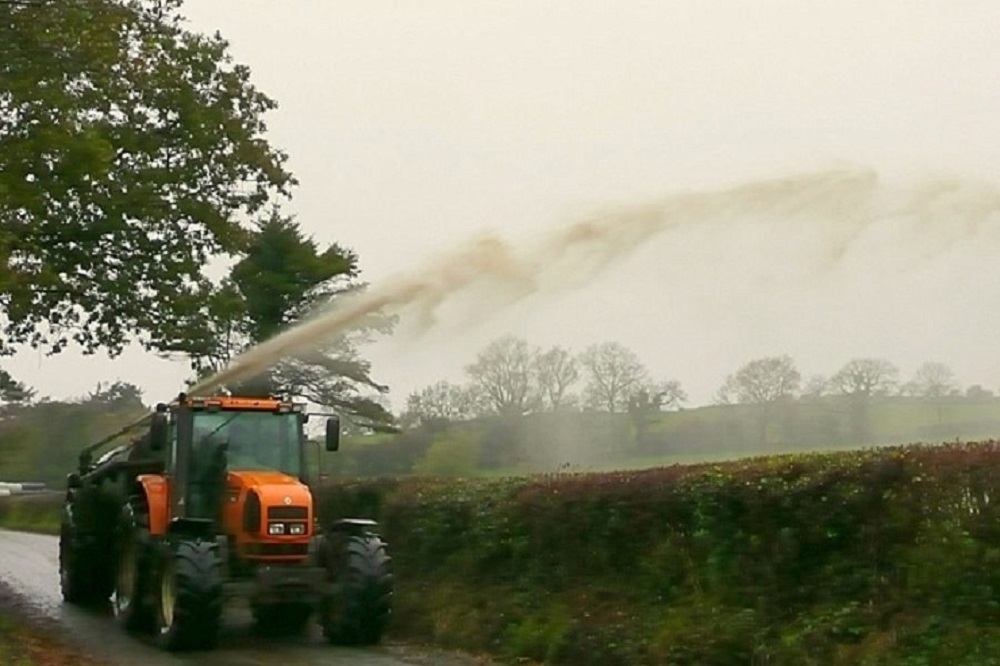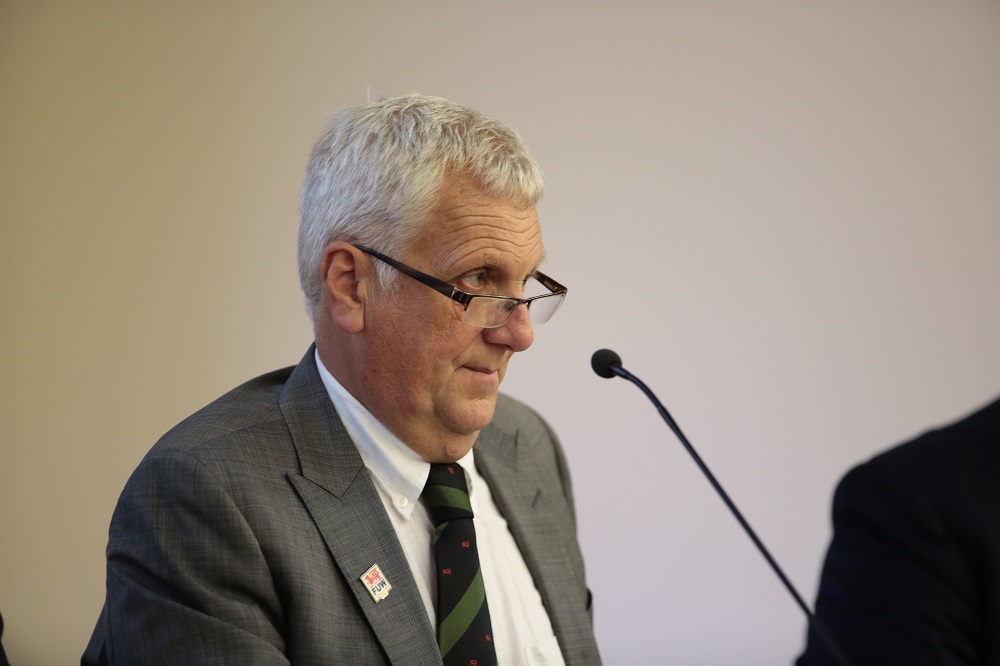More support pledged to help famers implement controversial water quality regulations

The Welsh Government has confirmed it is making more money available to help farmers meet controversial new water quality regulations and has confirmed it will delay the introduction of part of the measures by three months.
In March the High Court dismissed a legal challenge from NFU Cymru against the regulations introduced last year, which effectively make the whole of Wales a Nitrate Vulnerable Zone (NVZ) and introduced closed periods for slurry spreading.
Farmers said the rules were “unworkable” and posed a significant threat to the economic viability of Welsh farming but Judge, Sir Wynn Williams said the Welsh Government had not acted unlawfully in making the regulation.
NFU Cymru estimated the new measures have regulations created up-front costs of around £360m and ongoing yearly costs of £14m.
Uncertainty
Lesley Griffiths, Minister for Rural Affairs, North Wales and Trefnydd acknowledged the unsuccessful Judicial Review introduced an element of “uncertainty” to implementation of the changes and as a result some farm businesses will have delayed taking investment decisions and making the necessary preparations.
Farmers leaders have also aired concern about the rising costs of implementing the measures due to inflation.
In a written statement, the minister announced the government is making available up to £20 million of extra funding to support compliance with the regulations.
She also confirmed implementation of the 170kg/ha annual holding nitrogen limit on 1 January 2023 will be pushed back to April 2023 and that a consultation will be launched this autumn on a licensing scheme which would allow businesses to apply for a licence for a higher annual holding nitrogen limit of 250kg/ha subject to crop need and other legal considerations.
Consultation
In a written statement, Ms Griffith’s added: “We will consult on proposals for such a scheme to be operational until 2025. In parallel to this, we will undertake a further, specific Regulatory Impact Assessment considering the economic and environmental impacts of the 170kg/ha annual holding nitrogen limit and will review the implications of this assessment for the future deployment of the regulations.
“Alongside this support, we remain committed to seeking the best mechanisms to address this important issue.
“We will also accelerate our work to encourage potential alternative technological solutions, using the Regulation 45 mechanism to do so where appropriate, including exploring the potential for treatments and processing of excess manures to be used in areas of nutrient deficiency and the potential for technology to reduce pollution risk and facilitate the most effective deployment of the regulations in future.
“These new steps I am announcing today under the Co-operation Agreement represent further significant action towards our shared aim to reduce pollution from agriculture and our continued commitment to do so in partnership with the farming community to achieve lasting results.”

In response to the minister’s statement, FUW President Glyn Roberts said: “This is a welcome opportunity for us to influence change and shows that continued lobbying has had some positive effects on what was an unworkable regulation.
“The proposed licensing regime would serve as a significant safety net for a number of farmers in Wales in the short term who are already above the 170kg limit.
“This is especially important where reducing stock numbers or buying or renting additional land are not viable options, and compliance with the 170kg limit will breach contracts or tenancy agreements, or compromise the ability to repay loans.
“However, this is just one regulation out of forty-six set out in this piece of legislation and therefore we must consider the long term implications of these regulations as a whole for our members.”
“It is important that the impacts of the 170kg per hectare limit are scrutinised and the hope is that the Regulatory Impact Assessment will provide more evidence to the Welsh Government which demonstrates the need to introduce the licensing regime into the regulations on a permanent basis,” he added.
‘Drop in the ocean’
“The extra funding of £20 million to support compliance is a mere drop in the ocean when we consider that the potential infrastructure costs for Welsh farmers is upwards of £450 million by now given current inflation rates of 25% for construction materials.
“However, given that the Welsh Government is committed to using the Regulation 45 mechanism to consider potential alternative technological solutions to certain regulations, and that they will consider the outcome of the specific Regulatory Impact Assessment and be required to review the effectiveness of the regulations in April 2025, we still firmly believe that the regulations set to be introduced in August 2024 should also be delayed.
“While this announcement will provide some breathing space for Welsh farmers over the next two years, it is outrageous to expect Welsh farmers to build new slurry stores by August 2024 with the support of the additional funding, only for the Welsh Government to consider and implement alternative technologies in 2025 which may then negate the need for closed periods and set slurry storage capacities in the future.”
Support our Nation today
For the price of a cup of coffee a month you can help us create an independent, not-for-profit, national news service for the people of Wales, by the people of Wales.




